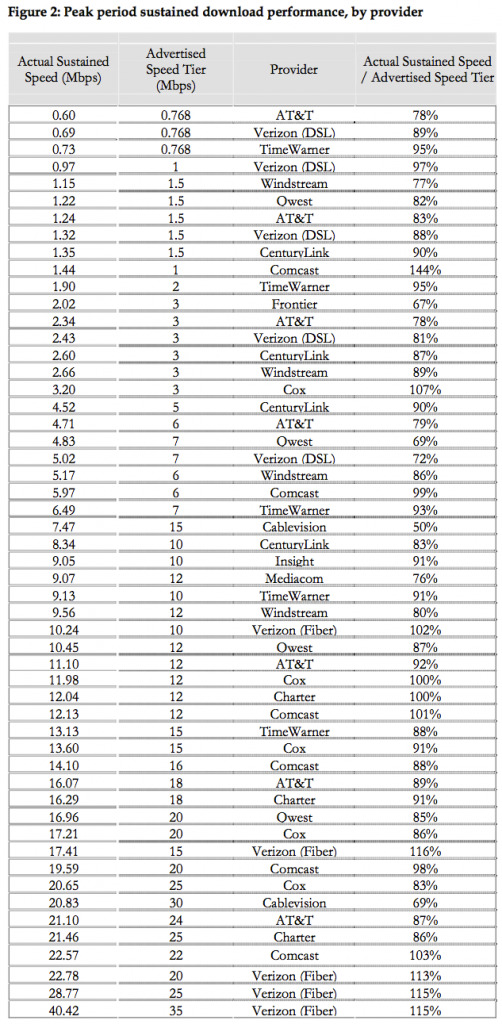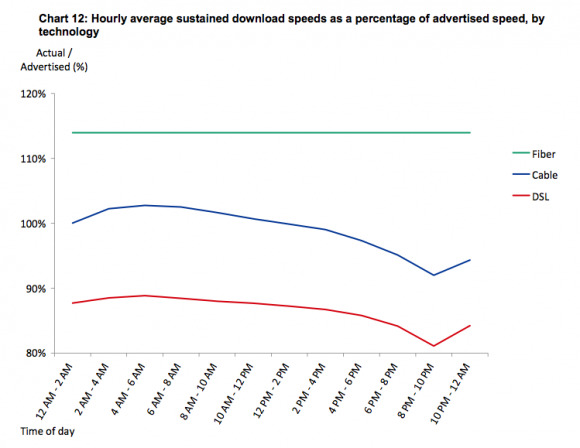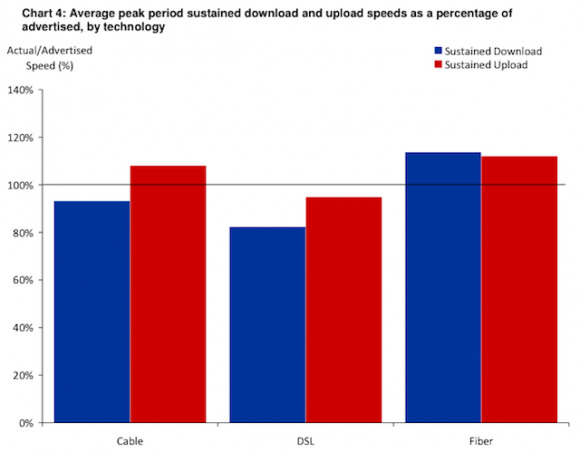FCC Measures Actual Internet Speeds In USA
For the first time in the history of the internet, the FCC has collected a mass of data showing "real-world" speeds at which USA internet connections are working. If we can trust anyone to give us, the public, unbiased plain-number results, it's the FCC, right? Georgia Tech professor Nick Feamster, working with the FCC on proper metrics for the test, noted that they "found that the performance of US ISPs more consistently matches their advertised promises than the ISPs in other countries—they do a pretty good job." Of course, with numbers like what we're seeing here and claims made by carriers around the US over the past few years, not everyone agrees.
One of the most interesting quotes on the subject comes from the FCC itself in the report, they noting the following: "actual download speeds are substantially closer to advertised speeds than was found in data from early 2009." How does this mean for you? Nothing much if you just consider the fact that on the whole, no internet carrier in the United States consistently has the internet speeds they advertise. Research director S Derek Turner of Free Press had the following to say about the report:
"No matter how industry tries to put a positive spin on these results, the report shows conclusively that many Americans are simply not getting what they pay for. This study indicates Comcast, Cox, and Verizon FiOS largely perform well, but other companies like Cablevision, AT&T, MediaCom, and Frontier all fail to deliver their customers the quality of service promised. In every other industry, giving your customers less than what they paid for is a very serious offense. ISPs should be held to the same standard, no matter how much they try to spin their way out of it." – Turner

The report itself shows all major ISP's running at around 80 to 90 percent of their regular advertised speeds, with cable and especially fiber services offering higher-than-advertised speeds for a large portion of the average day. One of these carriers, as is made plain by the graphic above, never hits its advertised speeds, remaining well belo 80% for most of the day, hitting less than 55% near the end of the day. And where do these tests come from, you might ask? A company called SamKnows, whom the FCC has contracted to work on this project.
The way SamKnows worked on this project is by working with 78,000 internet users from around the United States, selecting 9000 of them to receive a router configured in a specific way so as to ensure accurate results. The router takes (or took, rather,) measurements during the month of March, 2011, and tested the users broadband speed from the user's home to a remote server. Results were then cross-checked with ISP-installed reference points to again ensure accuracy in the results.

You'll find Verizon's FiOS to be the most excellent, without compare amongst competitors when it comes to internet speed difference as it never changes, at all, ever. On the other hand when you consider Cablevision again, you've got to take into account the response to numbers sent in to Ars Technica, updated here as well:
"Cablevision delivers some of the fastest Internet connections in the country, on our basic tier, two higher levels of service, and our WiFi network, and this report simply does not reflect the experience of our nearly 3 million broadband customers," said a spokesperson. "Our high-speed Internet product leads the nation in consumer adoption and has consistently won top ratings in much broader and more extensive consumer surveys conducted by J.D. Power & Associates, PC Magazine and others." – Cablevision
On the other hand, the study they refer to shows items like overall satisfaction, billing, and customer service, without showing numbers for speed. You can download the entire FCC PDF here for your own perusal or further publishing for the greater good of internet speeds.

